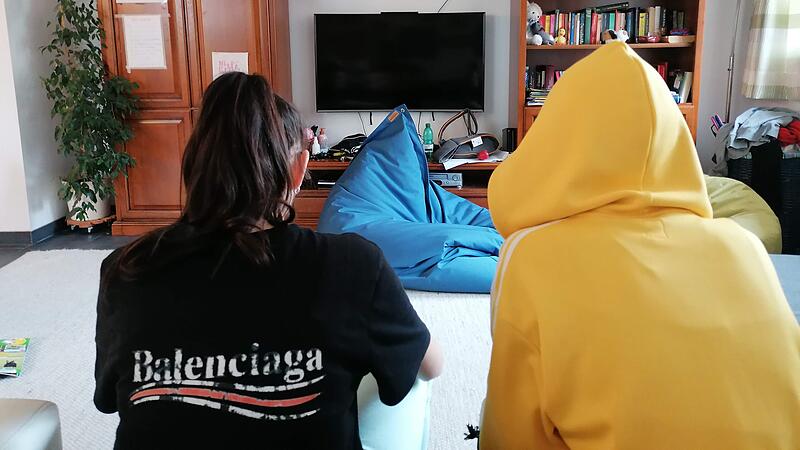It was found that only half of the caregivers had socio-educational training. In addition, staff shortages led to excessive demands, staff changes and, as a result, to broken relationships with the young people.
The reason for the focus of the audit, which was carried out over a period of 18 months, was primarily because the training and qualifications of the staff are regulated differently in each federal state. Child and youth welfare is a state affair. In the individual federal states, different professional groups are permitted to work in socio-educational flat shares. “We looked at whether the qualifications of the employees correspond to the specific conditions in their flat shares. The professionalism of the specialists in a facility is the basic requirement for children and young people to be accompanied in their development in the best possible way,” said Ombudsman Bernhard Achitz (SPÖ). a press conference in Vienna. For a long time, the Ombudsman Board has been calling for a standardization of the requirements throughout Austria, but this was not even realized when the federal government was still responsible for this.
“Staff shortage is massive”
The training of the care staff working in the facilities is extremely poor. “There are providers in whose flat shares not a single caregiver, not a single caregiver with socio-pedagogical training works,” says Gerald Herowitsch-Trikl from the umbrella organization of Austrian child and youth welfare institutions (DÖJ). He criticizes that far too few suitable specialists have been trained for years. “The shortage of personnel is massive. This situation is often exacerbated by the lack of standards. For example, if the employees with ten children are alone in a shared flat, they cannot help but constantly find themselves in situations of being overwhelmed,” said Herowitsch-Trikl. It needs people who understand traumatization and know how to work through it together. “It needs qualified and enough people for this,” says Herowitsch-Trinkl, who also works in a therapeutic facility in Burgenland. In order to implement this, structure and funding are needed. “And there’s a problem.”
Herowitsch-Trinkl asked the children and young people in his facility what would happen if only one teacher looked after the flat share. “You can’t talk to anyone” or “You feel you’ve been treated unfairly if nobody has time for you,” were the answers given by children and young people aged eight to 17.
Stable relationships are crucial for children and young people in external care. The highest possible continuity in care is a prerequisite for this. Frequent changes in the educational staff make even harmonious groups restless and their supervision more challenging. Every breakup in a relationship means retraumatization. The Ombudsman’s Office advises improved working conditions, higher wages, incentives such as paying travel expenses or official housing to prevent this.
Various handling at enrollment
How quickly the employees in these flat-sharing communities have to assume responsibility for themselves is shown by the different handling of the training. 97 percent of the facilities stated that they had an induction phase. However, the duration is quite different. In most cases it lasts up to a month. In about a fifth of the facilities, however, it is terminated after two weeks or less. In a tenth of the flat shares, however, new caregivers are deployed on their own responsibility for the day after just one week. The Ombudsman advises introducing a mandatory training phase of one month, during which no independent services may be taken over.
At night, in many facilities there is only single occupancy instead of double occupancy. However, if there are problems due to dependencies, escalations or illnesses in children, a second person is needed, for example if a child has to be taken to the hospital by the ambulance service.
Police are often called
The Ombudsman Board not only looked at how well the employees in the youth flats are trained, but also what the situation is with further training and supervision. In addition, the biggest problems that can be traced back to a lack of training and further education were analysed. This was noticeable in the many police operations and psychiatric admissions. “In 41 percent of the facilities, the employees only knew how to help themselves by calling the police,” Achitz said, just one of the problems. “If continuous relationship work with the young people is not possible, one should not be surprised at the conditions in the shared flats.” Human rights violations, such as locking children in their rooms or administering sedative drugs, could be made possible in this way. These children and young people are taken from difficult circumstances in order to offer them a better life.
Only 69 percent of the facilities have a mandatory advanced training program for all employees. In almost a third of all facilities there are no or only voluntary further education and training programs. Because of the Covid-19 pandemic, these options have been reduced to a minimum.
“This is a criticism of the framework conditions”
“This is a criticism of the general conditions,” emphasized Achitz. “The staff at these facilities do a great job.”
The Ombudsman Board has the constitutional mandate to examine public and private institutions in which people’s freedom is restricted or can be restricted in order to protect and promote human rights. In addition to prisons, these include psychiatric hospitals, retirement and nursing homes and facilities for people with disabilities. Multidisciplinary commissions then inspect around 500 facilities per year without any specific reason and regardless of complaints, in the vast majority of cases unannounced. This is based on two United Nations agreements, the Optional Protocol to the United Nations Convention against Torture and Other Cruel, Inhuman or Degrading Treatment or Punishment (OPCAT) and the UN Convention on the Rights of Persons with Disabilities.
Source: Nachrichten




